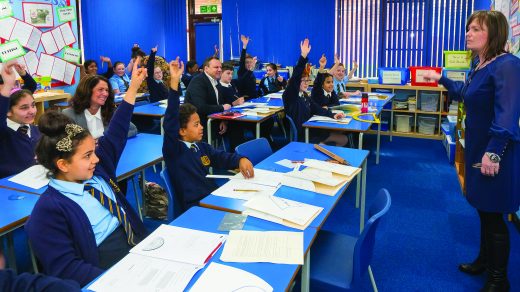Have you signed up to newsletter yet?
Each month, Evaluate-Ed send out a school improvement newsletter consolidating key topics and trends in school improvement. This month’s newsletter insight was all about a broad and balanced curriculum.
There are many elements surrounding the word curriculum, including our perception of what a ‘deep dive’ into a broad and balanced curriculum is and why we should perhaps embrace the concept before, during and after inspection. Evaluate-Ed believe that when all schools review, monitor and evaluate their curriculum provision, the deeper they dive, the more they will understand their current successes and ensure their vision.
The words ‘balance’ and ‘broad’ were at the centre of the 2002 Education Act, which required schools to provide a balanced and broadly based curriculum which: promotes the spiritual, moral, cultural, mental and physical development of pupils/students at school and of society, and prepares pupils at the school for the opportunities, responsibilities and experiences of later life.
This all-encompassing statement has supported school curriculum development since and is the centre of its current national curriculum, as seen below: –
• The school curriculum comprises all learning and other experiences that each school plans for its pupils.
• The national curriculum forms one part of the school curriculum, including teaching RE and SRE (secondary), providing a daily act of collective worship and specific provision for PSHE.
• Schools are also free to include other subjects or topics of their choice in planning and designing their own programme of education.
Therefore, schools are required to provide a curriculum of 12 subjects, plus RE, SRE and PSHE, (up to the end of KS3), while the EYFS Framework consists of seven areas of learning for children during the Foundation Stage.
In order for the curriculum to be effective and meet the statutory requirement, schools need to ensure it provides enough subjects, areas and experiences in a suitable timetable to prepare pupils for the opportunities, challenges and responsibilities of later life. This ‘broad’ curriculum should be taught, available and on offer to all pupils for as long as possible.
Schools’ balanced ‘curriculum’ should ensure each subject, area and experience has enough space to have a distinct role that enables pupils to gain benefit from their inclusion in the timetable.
Too often art, music and languages are not given quality time due to tests and exam pressures. Some may remember the higher priority given to science during KS2, when included in SATs tests and its demise following its removal. A broad and balanced curriculum is difficult to implement against a background of the annual publication of SATs and exam results, alongside academisation and inspection.
Finally, to the most recent Ofsted framework, which has an overall effectiveness judgement supported by judgements around: quality of education, behaviour and attitudes, personal development and leadership and management.
During an inspection the deep dives consist of inspectors:
• Evaluating senior leaders’ intent for their curriculum and their understanding of its implementation and impact.
• Evaluating subject leaders’ long and medium term plans, with a rationale for content choices and curriculum sequencing.
• Planning visits to lessons linked to subjects or curriculum areas connected to evaluations.
• Scrutinising books and other pupils work connected to evaluations.
• Discussing with teachers around their curriculum decisions on content and sequencing.
• Holding discussions with pupils from observed lessons.
For more information or to sign up to the Evaluate-Ed monthly newsletter contact: www.evaluate-ed.com





